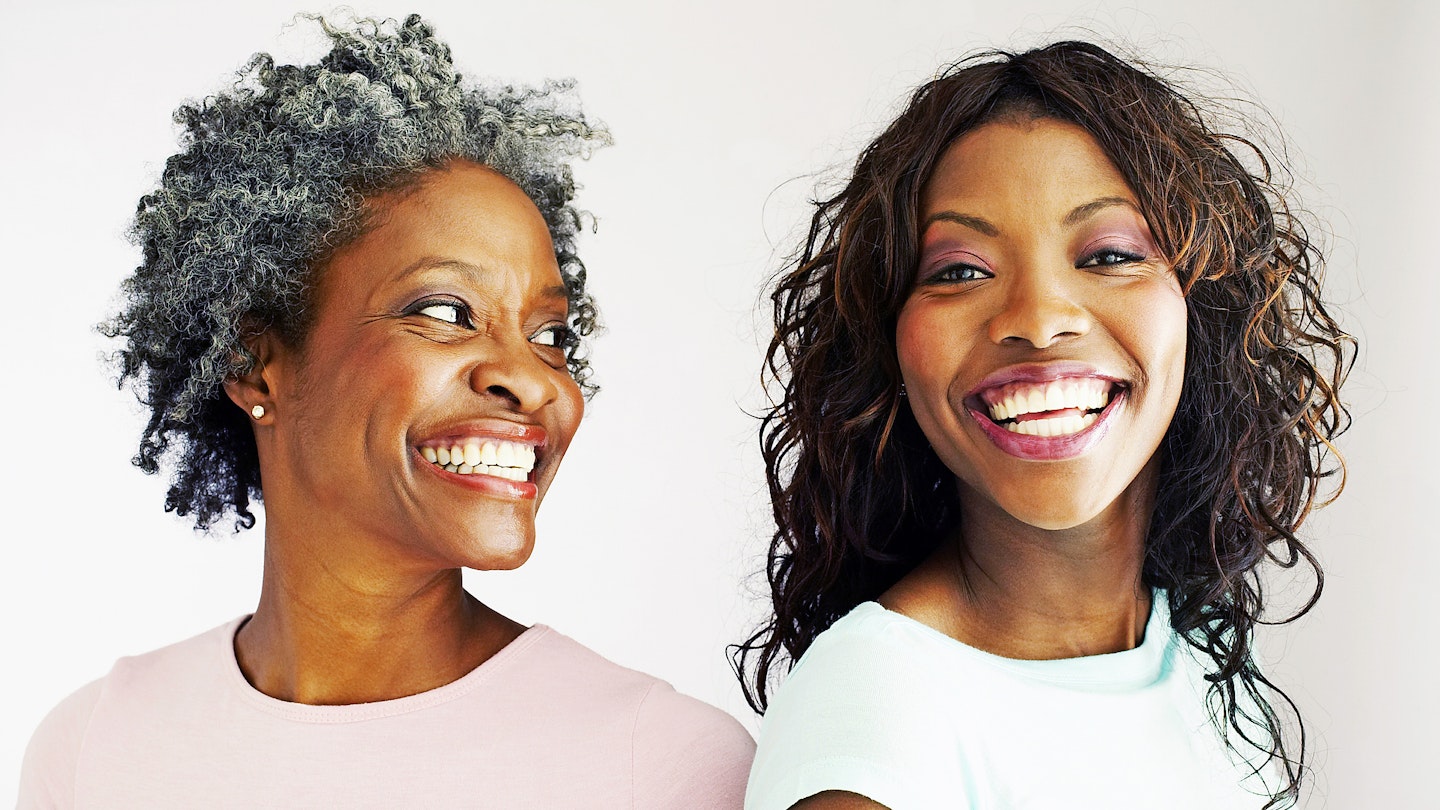The saying goes: ‘Like mother, like daughter.’ Here’s what your mum’s health might reveal about your own.
Our brains
Want to know where you get your brilliant brains from? According to scientists, you have your mum to thank! When researchers in Glasgow interviewed over 12,000 people, despite taking into account several factors such as the participants’ education, the team still found the biggest predictor of intelligence was the IQ of the mother. Sorry, Dad!
Our shape
Think your body shape is starting to look more and more like your mum’s? It might be! Studies show that our genes can determine up to 80 per cent of our weight and body shape, with apple-shaped bodies more genetically linked. The good news? Through exercise, a healthy diet and by building muscle, we still have the power to make important changes.
The menopause
Wondering when you’ll go through the menopause? Or why you went through it when you did? A study by the UK’s Institute of Cancer Research found that women whose mothers or non-twin sisters went through the menopause either early or late were also at increased risk of doing the same — so if your mum went through the menopause early or late, there’s a good chance you might too.
Our happiness
A lot of factors influence our mood, but you might be surprised to learn that your mum’s mood could be one of them. Research suggests that the brain’s corticolimbic system, which is responsible for our emotional regulation, is more likely to be passed down from mother to daughter, than from father to daughter, meaning that if your mum suffers from depression, you might be more likely to as well.
On the other hand, experts have found that when we’re growing up, we mimic a lot of behaviour from our mothers, so if your mum usually seemed upbeat and faced challenges with a smile, you might behave that way too.
Our sight
How’s your mum’s vision? Do you know that you’re three times more likely to be short-sighted if your mum is? Furthermore, if your mum suffers from macular degeneration or glaucoma, you might be more at risk of developing these conditions too. Follow a good diet, stop smoking and speak to an optician about any eye conditions that run in your family to help reduce your risk.

Our bone health
We know that as we go through the menopause our risk of osteoporosis increases. But did you also know that if your mum has osteoporosis, or has suffered a broken hip, there’s a higher chance you’ll also develop the condition or suffer a fracture? This is because bone density is largely determined by genetic factors.
Improve your bone health by making sure you eat calcium-rich foods, getting plenty of vitamin D and doing weight-bearing exercises.
Our complexion
Want to know how your complexion might look in years to come? Take a look at your mum. Scientists suggest that it is the genes passed down by your mum which are partly responsible (alongside environmental factors) for how our cells and skin cope with the ageing process. So, if you don’t have many wrinkles, you know exactly who to thank!
Head health
Never had a migraine? It might be thanks to your genes. That’s because if your mum does suffer with migraines, there’s a 50 per cent risk you will too. If you do suffer, talk to your mum about her triggers — such as stress or certain foods — as yours may be the same. Although there’s no cure for migraines, there are a number of treatments, and identifying and avoiding your triggers can help.
Our sleep
Find yourself regularly tossing and turning at night? A recent study suggests that insomnia can be passed down from one generation to the next, but it is only inherited from our mother’s side. The study found that children with insomniac mothers sleep more poorly and spend less time in deep sleep.
This is thought to be in part due to genetic factors but also because when we’re children, we might spend more time with our mother than our father, so are likely to be more influenced by their habits.
Edited by Stephanie May
